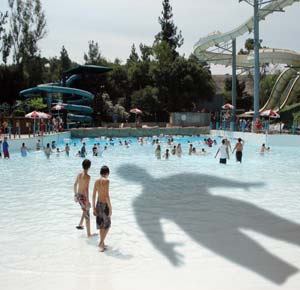What you don’t know about your employees could come back to haunt you. That should be the only reason aquatics managers need for conducting thorough background checks of all job applicants.
But if you still need another one, a consistent screening program can minimize liability exposure based on negligent hiring and retention, according to Alan T. Sklar, president/CEO of Creative Services Inc. Headquartered in Mansfield, Mass., CSI is an independent security consulting firm that has provided background screenings for Fortune 500 companies for 30 years.
Of course, not every municipal pool has the resources to outsource its employee screening to a firm such as Sklar’s. So Aquatics International asked Sklar for his insights on how to properly conduct a background check for potential employees.
The first step is to ensure that the employent application is legally compliant, solicits the necessary information and is thoroughly completed, Sklar says. Discrepancies in information or unexplained gaps in employment can signal a potential problem.
He urges that the components of a background check should be appropriate to the position and comply with any state, federal or industry regulations. For anyone working with children on a regular basis, a criminal history search should be standard operating procedure. In fact, the PROTECT Act of 2003 and Children’s Safety Act of 2005 demand it.
Also, it is imperative that the employer inform job applicants that the organization might conduct a background check. This step should be documented by asking the applicant to sign a waiver that authorizes the employer to perform a background search.
For aquatics facilities, a typical background check should include the following:
- A social security trace
- A seven-year criminal history search
- A sex offender registry search
- A verification of education
- A five-year employment verification
- Personal references
Other components may include checking motor vehicle records, credit history, military records, professional licensing, fingerprinting and drug and alcohol screening. These extra measures may go beyond the capabilities of a small aquatics facility, which is why Sklar strongly recommends that employers try to hire professional search or human resources firms more equipped in this area.



